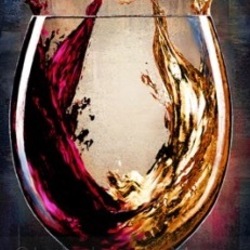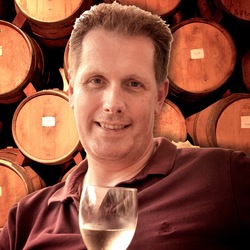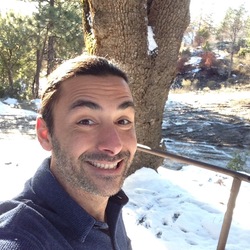Black Barrel Wine Works
Produttori del Barbaresco
Barbaresco Nebbiolo 2011
Great torre in the making. Sweet black and red cherry, strawberry and dusty like tannins. Nice structure. This beauty has 10-15 years ahead of it even with some air and food it already works great — 7 years ago
Château La Confession
St. Émilion Red Bordeaux Blend 2010
Superb €38 now £65 personal fav from St Em in top year 👍 w/ fab QPR & a soft spot for me as I had this same vintage from the barrel 😍 93 going 95-96
🍇 71% Merlot & 29% Cab F
🍷Opaque ruby w/ purple hue
👃 Chocolate coated black cherry, berry & plum through smokey oak, liquorice & wet crushed mineral rock w/ violets
👄 Med+ creamy silky mocha dark berry plum bang w/ liquorice & minerals
🎯 Long mocha berry plum slight dry mineral linger purple teether — 8 years ago
Château Clos L'Eglise
Pomerol Merlot - Cabernet Franc Blend 2005
3000th post. 🎉 On the nose; sweet, lush; black cassis, liqueur notes, sweet tarry notes, rich, lush; blackberries, dark cherries, black plum, plum, caramel, mocha, caramel, baking spices, warm, moist, rich, dark soils and fresh dark florals. The body is M and the tannins are round and soft. She is a beauty. Ripe, rich; blackberries, black plum, plum, dark cherries, black raspberries & poached strawberries. liqueur notes, sweet tarry notes, dark chocolate, mocha, caramel, baking spices, menthol, warm, moist dark earth, soft leather, dry rock powder, sweet black tea, fresh violets, dark, red florals, perfect round acidity and a rich, round, elegant fruit driven finish that last and lasts. Photos of; Clos E'Lgise and estate vines, signage, Helen Garcin-Leveque and her husband Patrice Leveque and their barrel cellar. Producer history and notes...Clos L’Eglise is one of the older chateaux in Pomerol dating back to the 18th century. The same time the farmhouse that is still in use was constructed. At the time, Chateau Clos L’Eglise was a larger estate. It once had been apart of the Gombaude Guillot. Eventually the estate was split in half. On one side of the street, you had Chateau Clos l’Eglise; which was owned by the Rouchut family. Across the street sat Chateau Clos l’Eglise-Clinet, which was owned by the Mauleon family. After awhile, Clos l’Eglise Clinet eventually changed its name to Chateau l’Eglise Clinet which also simultaneously gave birth to what we know today as Clos L’Eglise. While the wines are now produced by Helene Garcin that was not always the case with Clos L’Eglise. At one point, the estate produced wines under a leasing arrangement held by the Rouchut family. The modern era of Clos L’Eglise began in 1975, when the property facilities were all redesigned and modernized by the Moreau family. The Moreau’s also owned Chateau Plince. The old, non temperature controlled wood tanks were replaced by stainless steel. The vineyards were also expanded. Instead of buying more vines, the owners simply planted land that was being used as a pasture. Imagine now, Pomerol land being used to feed cattle. In the past, the property was planted with a much larger percentage of Cabernet Sauvignon, near 20%. All the Cabernet Sauvignon vines were eventually ripped out and replaced by Merlot. The next step of it's evolution took place in 1997 when the Right Bank estate was sold to Sylvaine Garcin Cathiard by the Moreau family. If the Cathiard name sounds family, she is the sister of Daniel Cathiard, the owner of Chateau Smith Haut Lafitte. The sale set a new benchmark price for Pomerol when it sold for 12 million Euros! Today that price would be laughable! Prior to 2000, that was considered a huge price for Pomerol. Further investment was needed to replace the aging concrete vats and again modernize the facilities. In fact, the first vintage of Clos L’Eglise made by Helene Garcin was produced at Haut Bergey in Pessac Leognan. Helene Garcin also manages two estates in St. Emilion, Chateau Barde Haut, Chateau Poesia (Mendoza, Argentina) and Branon, which is situated in Pessac Leognan. Helene Garcin was put in charge of the property. She hired Michel Rolland as a consultant and a complete renovation of the facilities took place. Michel Rolland was eventually replaced by Alain Raynaud. Starting with the 2015 vintage, Thomas Duclos recently replaced Alain as the consultant. Their property is nearly 6 hectares. L’Eglise soils are rich clay, gravel and iron. It's located on a sloping hill near Chateau Clinet, Chateau L’Eglise Clinet and Chateau Trotanoy. Clos L’Eglise is planted to 80% Merlot and 20% Cabernet Franc. On average, the vines are 35 years of age. There is one old parcel of Cabernet Franc that was planted in the 1940’s. Vinification of Clos L’Eglise takes place in 55 hectoliter, insulated, stainless steel tanks. The new steel tanks replaced the oak vats in 2012. Malolactic fermentation takes place in barrel. Clos L’Eglise is aged in 100% new French oak for between 16 and 18 months. The property also has a second wine, Esprit de L’Eglise. On average, about 1,200 cases of Clos L’Eglise are produced every year. — 8 years ago

Dunn Vineyards
Howell Mountain Cabernet Sauvignon 2013
On the nose, bramble fruits of; wild blackberries, plum, raspberries & sweet dark cherries. Green pepper, vanilla, salted caramel, dark soils and fresh & dry dark florals. The body is medium lean, tannins are extremely soft & round. Wild blackberries, plum, raspberries, sweet dark cherries, green pepper, black oil, wood shavings, dry stone, black cherry cola, vanilla, salted caramel, dark soils and fresh & dry dark florals. The acidity pours over the palate. The finish is not quite there but Randy's wines are 20 plus year wines. However, it's well balanced with 50-50 fruit and earth. Only concern here was the green bell pepper. Photo tour of; their Howell Mountain vines, barrel rooms, low yield vines and the legendary Randy Dunn. — 8 years ago
Nickel & Nickel
Dragonfly Vineyard Cabernet Sauvignon 2016
Violets & blue fruits leap out of the glass with warm spices. On the palate; lavender, vanilla, light caramel, dark cherries, dark chocolate, olallieberries, blueberries, black raspberries & black plum. The body is leaner than previous Dragonfly vintages I've had. Tannins are M-M+ that are firm and dark. Dark soils & minerals, salted caramel, vanilla, black licorice, leather & wood shavings. Finishes with dry dusty tannins with ripe fruits that rise over the top of the dry tannins. Barrel tasted the 2016 vintage at the Nickel & Nickel Entrecôte. Photos of the decanted wines to enjoy during lunch and the old Nickel & Nickel carriage.
— 9 years ago
Hill Family Estate
The Barrel Blend Napa Valley Merlot Blend 2014
Full bodied velvety texture, full of blueberry, black cherry and raspberry flavors. Floral notes on the nose carry through the palate. Natural fruit acidity keeps it balanced whilst dusty, minty herbal notes add complexity. — 9 years ago
Bodegas LAN
Lan Edición Limitada Rioja Tempranillo 2005
This is the 2005 Edicion Limitada. Wow...big spice, black fruit, smoke, and earth on the nose. Palate is rich and mouthcoating with fruit, dark chocolate, spice, and very-fine-but-still-rustic tannins. Bright acidity that works nicely with the earthiness. Very long finish on this beautiful wine. Very sensual. — 10 years ago
Uinta Brewing Company
Labyrinth Barrel Aged Quadruple Black Ale
Dark thick malt molasses licorice heavy alcohol — 11 years ago
Agharta Wines
Black Label Syrah Blend 2005
Very interesting... Crazy what 60+ months in barrel does to a wine. — 11 years ago
Bodegas Numanthia
Numanthia Toro Tempranillo 2008
50-100 years old 3500kg per liter very small under2tons per acre 100% new barrels better for barrel fermentation deep dark earth soy espresso dark berry and plum fruit meaty dark and wild animal very aromatic black licorice 2010 the best vintage ever2008amaxing next to 2005and of course 2004 very rich and well endowed on the palate very round and silky tannins a big but well balanced wine lots of dark spices and fresh on the finish dark spices and some wild animal like but has lots of fruit earth and dark earth with layers of everything here and in balance. Finish 50+ most excellent — 13 years ago
Black Stallion Estate Winery
Napa Valley Cabernet Sauvignon 2015
Notes of plum and cherry. Very soft, oak barrel aged nicely. Great smooth wine. — 7 years ago
Hendricks Wines
Gold Ranch Cabernet Sauvignon 2009
On the nose, ripe, ruby, fruits of; mulberry, blackberries, black raspberries, black plum, plum, black cherries, blueberries & creamy raspberries. Vanilla, hints of sweet tarriness, black licorice, whiff of spice, soft understated limestone minerals & crushed rock powder, fruity black tea, hint of fresh herbaceousness, rich, black turned earth, fresh dark floral bouquet and fields of lavender & violets.
The body is rich, ripe & full. The tannins are a little sticky but well softened, round and a touch chewy. The structure, tension, length, balance, tension and balance are very close to perfect and harmonious. Fruits are; mulberry, huckleberry, blackberries, black raspberries, black plum, plum, black cherries & creamy raspberries. Vanilla, hints of sweet tarriness, black licorice, whiff of spice, soft understated limestone minerals & crushed rock powder, fruity black tea, hint of fresh herbaceousness, rich, black turned earth, fresh dark floral bouquet and fields of lavender & violets. The acidity is round and rains like a waterfall perfectly over the palate. The very long, ruby, rich, well balance lasts minutes and is absolutely heavenly. Gorgeous, elegant, stunning wine.
Photos of; the vertical tasting we attended of all Hendricks Cabernets; 04, 05, 09 & 12 at the time w/ one of our favorite paintings in the background, Charles Hendricks working in the cellar, very old rootstock from the Stag’s Leap Vineyard where the fruit to make this wine normally comes from and a wide shot of the Stag’s Leap Vineyard.
Producer notes and history...Hendricks Cabernet Sauvignon is consistently sourced from a few of Napa Valley’s finest vineyards. In those near perfect vintages, Charles only makes a small production wine of around 250-300 cases. Charles only produces it when he has exception fruit. He’s made Hendricks Cabernet in; 2004, 2005, 2009, 2012 & 2014. Notice he didn’t make Hendricks Cabernet in a great vintage year like 2013. He wasn’t happy enough with his fruit in 2013 to put his name on it. That says a lot and maybe all you need to know about his standard for quality. I do know what wine his 13 fruit made as I’ve had and it’s an unbelievable wine for far less money.
Charles also makes a fantastic Pinot Noir from the Santa Lucia Highlands that is really quite amazing. Especially, if you give it 5 or 6 years in bottle. All his wines are sold exclusively through the Hope & Grace tasting room in Yountville as he is also the Hope & Grace Winemaker.
Charles graduated in 1982 from UC Davis in viticulture. He was also able to tailor his own curriculum and was one of the earliest to integrate winemaking and viticulture course work. Having knowledge of both viticulture and enology forms the basis for his well-rounded winemaking.
Over the years Charles has worked in both Napa and Sonoma Counties, gaining hands on experience in all aspects of winemaking. He has a strong reputation for excellence. In his career, he’s been a consulting winemaker for many wineries; Viader, Barnett Vineyards, Paoletti Vineyards, Regusci Winery, James Cole, T-Vine and Tamayo family Vineyard.
I asked Charles, “how does he make wines that are amazingly good in their youth but will age effortlessly for 15-20 years?” His answer was simply this, “its not that hard, you just have to know the perfect time to harvest fruit.” I would agree with that to a degree. But, you also have to know how to gently guide fruit onto it’s path into the barrel and not get in the wine’s way or overwork the process. — 8 years ago

Doubleback
Walla Walla Valley Cabernet Sauvignon 2014
90% Cabernet, 7% Petit Verdot and 3% Merlot. On the nose; rich, lush dark, cassis. Blackberries, blueberries, black raspberries, vanilla, cinnamon, clove, soft minerals and fresh, red & dark florals. The fruits match the nose. Dark, rich soil, leather, crushed rocks, nice amounts of baking spices and fresh violets. Lovely round acidity. The finish is; big, rich, round and elegant. It's a beautiful wine. Photos of; the metal framing of their new winery and tasting facility; which they should move into in January 18 and open to the public in April. The cellar room concrete floor & walls are already poured and painted underneath the metal framing. Also, their new Syrah vines and some experimental Bordeaux varietals planted this spring, their Healy vineyard sign and their barrel cellar. Look for Doubleback to continue to push quality in their new winery starting with the 18 vintage. — 8 years ago
Casa Sauza
Hornitos Black Barrel Añejo Tequila
Very good. Nice and smooth. — 8 years ago
Château Pichon-Longueville Baron
Baron de Pichon-Longueville Pauillac Red Bordeaux Blend 2004
I have to say this is my favorite Chateau to stand in front of and gaze. On the nose, spice, wild blackberries, dark cherries, blueberries, black plum, plum, leather, cedar, dark moist soil, wet stones, mint, tobacco leaf and dark fresh & dry flowers. It's drinking nicely with silty medium-medium + tannins & full bodied. Ruby, ripe wild blackberries, dark cherries, blueberries, black plum, plum, leather, cedar, dark moist soil, wet stones, crushed dry minerals, mint, tobacco leaf and violets, dark fresh & dry flowers. The acidity is round and mouthwatering. The long finish has great elegance, beauty, length, tension & balance. It's just starting to hit it's stride and has plenty of life ahead of it. Another 15-20 years. Who said 04 was a difficult vintage? This will continue to improve and will stun with another 10 years in bottle. Photos of the the exterior Chateau front & side, tasting room and Christian Seely Managing Director. Chateau Pichon Baron and Chateau Pichon Lalande were originally part of the same estate. Pichon Baron got it's name when Therese, daughter of the founder, received the estate as a dowry when she married Jacques de Pichon Longueville the first President of the Bordeaux Parliament. Chateau Pichon Baron changed because of the Baron Joseph de Pichon Longueville. He took over managing Pichon Baron when he was only 19 years old! When the Baron passed away at 90 in 1850, he divided his Pauillac estate. The sons were awarded what became Chateau Pichon Baron and the daughters were given what later became Chateau Pichon Lalande. Pichon Baron went through three rough decades in the 60's, 70's and 80's. Part of the issues were, lack of investment and they machine harvested. The first really great vintages for them were 89 & 90 after Jean Rene Matignon, Jean-Michel Cazes join them and AXA Insurance Company purchased them adding capital. The 73 hectare vineyard of Chateau Pichon Baron are planted to 65% Cabernet Sauvignon, 30% Merlot, 3% Cabernet Franc and 2% Petit Verdot. However, the Cabernet Franc and the Petit Verdot are reserved exclusively for the second wine. The terroir is mostly deep gravel, sand clay soils. Pichon Baron uses 80% new French oak and rests in barrel 18 months. @ FogoDeChao
— 8 years ago
Kingston Family Vineyards
Lucero Casablanca Valley Syrah 2011
Rich color of shadows [12 month, new French oak barrel program]. 7 day maceration produced jammy aromas and blackberry preservative flavors, black pepper spice. thrilling tannins haven't weakened from aging. Finish lingers nicely. — 10 years ago
Chappellet
Signature Donn Chappellet Napa Valley Cabernet Sauvignon 2004
I must say I was a little concerned when I first tasted this wine but after about an hour in the decanter and without food, it was soft, decent fruit richness but lacked power and complexity. However, with the ribeye, the flavors and complexity really shined. The fruits are ruby. Creamy blackberry, raspberry, blueberry, cherry cola, black plum, nutmeg, allspice, star anise, just hint of thyme & rosemary, mocha, caramel & vanilla barrel toast, long smooth finish that doesn't stop. Enjoy now and for another 5-8 years. Best apparently with a ribeye! — 11 years ago
Jameson
Triple Distilled Select Reserve Black Barrel Irish Whiskey
Mellowed bananas and roasted nuts. Very smooth. Jameson as it could be — 11 years ago
Black Rock Wine Works
Red Hills Lake County Zinfandel 2009
Sweet but not overly so
Good body — 11 years ago
Mount Gay Distilleries Ltd.
Black Barrel Rum
Time to dress the Christmas tree — 12 years ago
Aonair Wines
Reserve Series 10 Barrel Production Cabernet Sauvignon 2011
Very nice wine. Mountain fruit. Poured with medium density to the glass. Nose was actually a classic Oakville nose of dense black fruit and youthful oak. Smoky. Entry is medium bodied, black cherry tart that gets a little deeper and darker with good acidity to the back. Youthful tannin here with a hint of pepper, not overdone. IMO still needs a few more years to integrate a little more but still a really nice wine. — 7 years ago
Château Brane-Cantenac
Grand Cru Classé en 1855 Margaux Red Bordeaux Blend 2005
I have a six-pack of this 05. I thought after 10 years in bottle, it would be interesting to check in on its evolution. While tasty, I’ll wait another 8-10 to open another. Even after 2-3 hours in the decanter, it’s still a very young adolescent. On the nose, slightly sour blackberries & dark cherries, dark currants, baked black plum, haunting blue fruits, anise, whiff of spice, steeped tea, dry stones, dry crushed rocks with dry top soil, caramel, vanilla with fresh & dry red florals. The body is thick & full. Tannins are starting to round out. It’s velvety on the palate. The fruits are; bright, fresh & ripe and really show the greatness of the 05 vintage. Dark currants, blackberries, dark cherries, baked black plum, haunting blue fruits, baked strawberries, cherries, raspberries on the long set, dark spice, clay & loamy dry top soil with crushed rocks, dry stones, cigar with ash, graphite, dry stems, slight herbaceous character, mint, used leather, clove, caramel, vanilla, fresh & dry red florals with violets. The round acidity is about perfect. The structure and length are still strong. The balance is in harmony. As for the long finish, it’s lush, ruby, rich and well polished. Photos of; Chateau Brane Cantenac, large wood vats, Henri Lurton and Estate vines. Producer notes and history...Chateau Brane Cantenac began in the early 17th century. At the time, the estate was known as Domaine Guilhem Hosten. Even that far back, wine was produced from the property. In fact, the wine was so highly regarded it was one of the more expensive wines in Bordeaux. It sold for almost as much money as Brane Mouton. This is interesting because of who went on to buy the vineyard in the 1800’s. The Baron of Brane, also known as “Napoleon of the Vineyards”, purchased the Chateau in 1833. At the time of the sale, the estate was called Chateau Gorce-Guy. To get the funds needed to purchase the Margaux vineyard, the Baron sold what is now called Mouton Rothschild, which was at the time of the sale, known as Chateau Brane-Mouton. Not such a good move with hundreds of years in hindsight! In 1838, the Baron renamed property taking his name and the name of the sector where the vineyards were located and called it Chateau Brane Cantenac. The Chateau later passed to the Roy family, who were well-known in the Margaux appellation in those days, as they owned Chateau d’issan. Moving ahead to 1920, the Societe des Grands Crus de France, a group of merchants and growers that owned several chateaux located in the Medoc including; Chateau Margaux, Chateau Giscours, and Chateau Lagrange in St. Julien, purchased Chateau Brane Cantenac. Five years later, M. Recapet and his son-in-law, François Lurton, took over Brane Cantenac along with Chateau Margaux. Lucien Lurton (the son of François Lurton) inherited Brane Cantenac in 1956. Today, the estate is still in the hands of the Lurton family. Brane Cantenac is owned and run by Henri Lurton. After being given the responsibility of managing Brane Cantenac, it was under the direction of Henri Lurton that large portions of the vineyard were replanted. Vine densities were increased, the drainage systems were improved and the plantings were also, slowly changed. The vineyard of Brane Cantenac is planted to 55% Cabernet Sauvignon, 40% Merlot, 4.5% Cabernet Franc and .5% Carmenere. Carmenere was used for the first time in the 2011 vintage. The only other Chateau I know that still uses Carmenere is Clerc Milon. The 75 hectare Left Bank vineyard of Brane Cantenac is essentially unchanged since it earned Second Growth status in the 1855 Classification. At least that is the case with the 45 hectares used to produce the Grand Vin of Brane Cantenac. Those 45 hectares are planted surrounding the Chateau. Those vines are located just in front of the Cantenac plateau and are the best terroir that Brane Cantenac owns. They have other parcels, which are further inland and much of those grapes are placed into their second wine, Le Baron de Brane. Those additional hectares can be divided into 3 main sections. Behind the Chateau, they have 15 hectares of vines on gravel and sand, 10 hectares across the road with sand, gravel and iron and a 13 hectare parcel with gravel called Notton, which is used for their second wine. The vineyard is planted to a vine density that ranges from 6,666 vines per hectare on the plateau and up to 8,000 vines per hectare for the vines located behind chateau, in their sandier soils. The higher levels of vine density are always found in the newer plantings. The terroir of Brane Cantenac consists of deep gravel, sand and clay soil. Experiments in the vineyards are currently looking at becoming more organic in their vineyard management. Today, more than 25% of Brane Cantenac is farmed using organic farming techniques. It is expected that over time, the amount of hectares farmed with organic methods will be increased. Brane Cantenac has gone through 2 relatively recent modernization’s in 1999, when they added began adding the first of their smaller vats to allow for parcel by parcel vinification and then again in 2015 when they completed a much more complete renovation of their cellars and vat rooms. While Brane Cantenac is a traditional producer, they are no stranger to technology as they were one of the first estates to embrace optical grape sorting machines. In very wet vintages, they can also use reverse osmosis. To produce the wine of Chateau Brane Cantenac, the wine is vinified in a combination of temperature controlled, traditional, 22 oak vats, 18 concrete tanks and 20 stainless steel vats that vary in size from 40 hectoliters all the way up to 200 hectoliters, which allows for parcel by parcel vinification. 40% of the fermentation takes place in the oak vats. The oldest vines are vinified in vats that are selected to allow for separate parcel by parcel vinification. The younger vines are vinified more often together in the same vats. However, the Carmenere is entirely micro-vinified, meaning that those grapes were completely vinified in barrel, using micro-vinification techniques. This can also happen because the amount of grapes produced is so small. Some vats can be co-inoculated, meaning they go through alcoholic fermentation and malolactic fermentation simultaneously. At Chateau Brane Cantenac, malolactic fermentation takes place in a combination of French oak tanks and barrels. The wine of Brane Cantenac is aged in an average of 60% new, French oak barrels for 18 months before bottling. The initial 2 months of aging is done with the wine on its lees, which adds more depth to the wine. There second wine is Le Baron de Brane. Le Baron de Brane is not new. In fact, previously, the second wine went under the name of Chateau Notton, which took its name from one of the main parcels where the grapes were planted. During the late 1950’s and into the 1960’s, having a second wine was important as the estate declassified 3 vintages, due to extremely poor, weather conditions in 1956, 1960 and 1963. Production of Chateau Brane Cantenac is about 11,000 cases per year. — 8 years ago

Joseph Phelps Vineyards
Insignia Estate Grown Napa Valley Cabernet Sauvignon Blend 2015
The 15 vintage is still in barrel and will be for awhile longer. On the nose, bright, fragrant field of wild flowers, black licorice, cinnamon, vanilla, ruby fruits of; blackberries, blueberries, dark cherries, cherries, strawberries and dark loamy soils. On the palate; bright, fresh, ripe fruits that mirror the nose, nice deep spices, cinnamon, clove, nutmeg, vanilla, tobacco, graphite, soft leather, dry crushed rocks, edgy volcanic minerals and pronounced dusty/crumbly tannin structure. The long finish has beautiful ripe fruits with good structure, balance, acidity with a touch of strawberry cola. Photos are the other large old oak fermentation vats inside their estate and another perspective of their awesome terrace view. Notice on the label...no Merlot? The decided to rip up and replant their Merlot vines. — 8 years ago
Jacob's Creek/Orlando
Double Barrel Shiraz 2013
Ripe berry, black currant, light licorice nose; rich, tasty, black currant, black cherry palate with sweet tannins; long finish — 9 years ago
Rutherford Hill
Barrel Select Napa Valley Red Blend 2009
Blackberry and dark cherries. Black currant and silky tannins. Ages in French oak and its stellar! Really enjoyed this wine. Just wish I had more... — 9 years ago
Château Léoville Barton
Saint-Julien Red Bordeaux Blend 1990
Not quite as sensational as our bottle in February due to storage differences. Cooked fruit of; rhubarb, raspberries, strawberries, dusty crush stones, leather, dark vanilla barrel toast, black earth and pebbles, black tea, hint of mushroom. Finishes soft and elegant with just a touch of funk. Hope you all enjoyed Christmas!!! — 10 years ago
Nickel & Nickel
C.C. Ranch Rutherford Cabernet Sauvignon 2011
Velvety and smooth. Big black fruit flavors (plum, blackberry, currant) but not sweet. Very mild tannins. Works well with food or just sipping on its own. — 11 years ago
Henry Estate
Umpqua Valley Barrel Select Pinot Noir 2008
Black cherry, cassis, loamy earth, dusty leather and hints of oak and smoke. Delicious. — 11 years ago
Black Star Farms
2011 Arcturos Barrel Aged Chardonnay 2012
Very nice, light and not too dry. — 12 years ago

















Michael Nippe
Thank you Jon. This is great. — 6 years ago